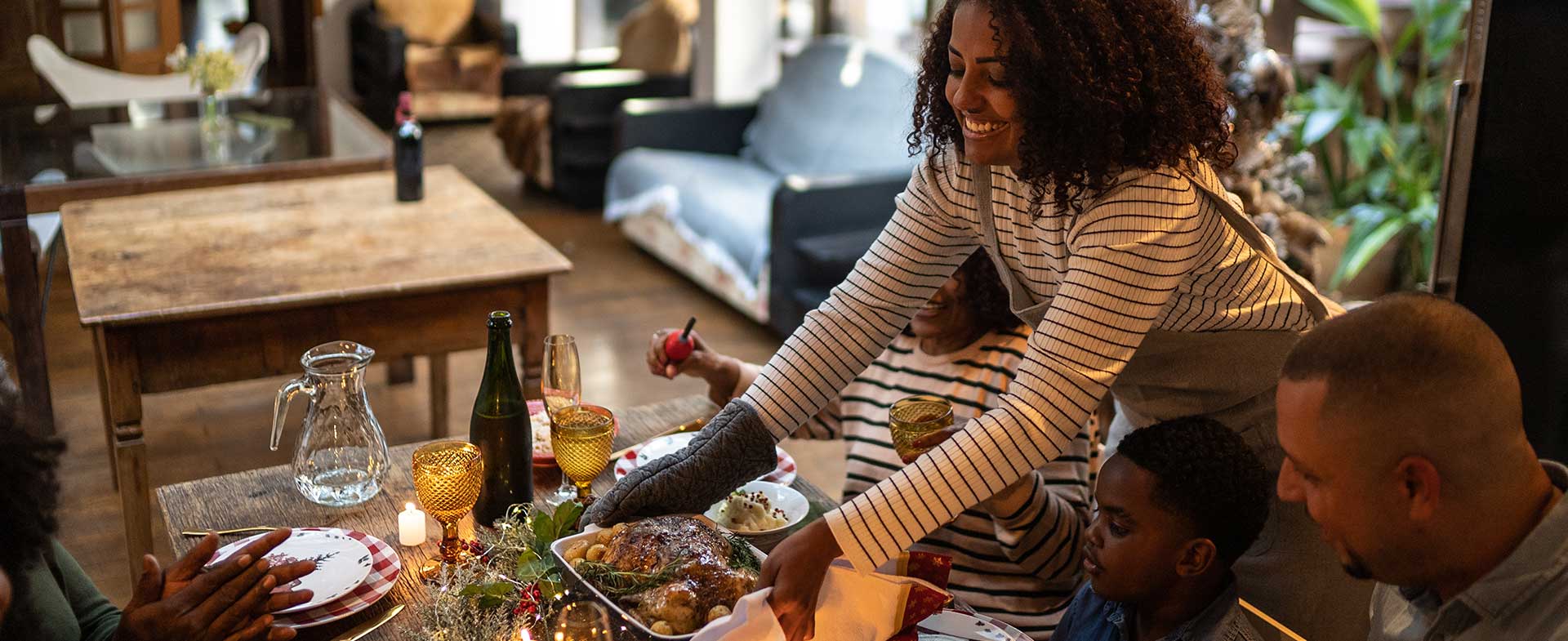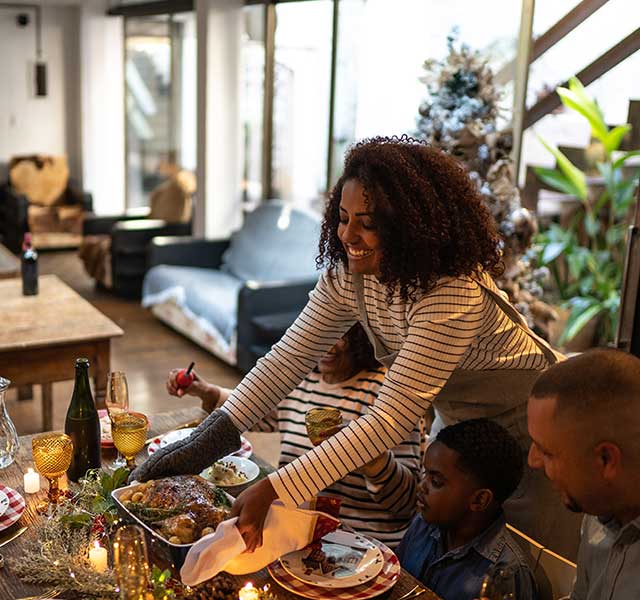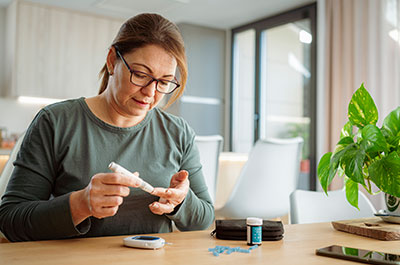Another pandemic holiday season is upon us. (It's our third, if you're counting.) For many, life has gotten back to normal, and they've reunited with loved ones who they hadn’t seen during the height of the pandemic. But it’s still difficult to know what's safe to do—especially because experts are predicting COVID-19 cases will surge during the holidays.
But we get it: you don’t want to keep passing up parties and joyful celebrations with friends and family. And you don’t have to. “There are ways to mitigate your risk and protect one another without having to forgo holiday traditions,” says Dennis Cunningham, M.D., medical director of infection control and prevention at Henry Ford Health. “During the first COVID-19 holiday season, we didn’t have as many tools at our disposal to reduce the risk of contracting COVID-19. That’s why it made the most sense to have smaller celebrations with those in your household. But now, we’re luckily in a better place.”
Here's how to "prep" for another pandemic holiday season.
1. Get the new bivalent booster. The original COVID-19 vaccines are safe and effective, but their effectiveness decreases over time. The new bivalent booster will increase your protection against the original strain of COVID-19 and the Omicron variants, which have been able to better evade vaccine detection. Everyone ages 5+ is eligible to get a bivalent booster and you can get it as soon as two months after your last COVID-19 vaccine.
"Get the bivalent booster as soon as you can," says Dr. Cunningham. "It takes about two weeks for it to become fully effective, and you want as much protection throughout the holiday season as possible." (PS: If you haven’t gotten your flu shot yet, you can get it at the same time as your COVID-19 booster. The flu is expected to be more severe this year.)
2. Keep COVID-19 tests on hand—and don’t dismiss any symptoms. With COVID-19 cases expected to rise, at-home tests might be hard to come by and drive-through appointments might become limited. Keep a few testing kits on hand in case you’ve been exposed or are experiencing any symptoms.
“Don’t write off mild symptoms as nothing,” says Dr. Cunningham. “We know that some people can have symptoms of COVID-19 that resemble a cold—or even less. Especially when you’re going to be around a lot of people, it’s better to be safe than sorry.”
Some people who contract COVID-19 stay completely asymptomatic. So even if you were exposed and feel fine, it’s a good idea to test three to five days after exposure to give yourself more confidence that you’re negative.
3. Try to limit activities before holiday gatherings. When you know you have a big party or event coming up, try limiting your social life for the two weeks previous to the event. (Call it a semi quarantine, if you will.) This will decrease your chances of getting COVID-19 and help to ensure you’ll be healthy for the party—especially if you know someone will be there who is at higher risk for severe COVID-19.
4. Put your mask on in public. On that note, it’s a good idea to wear a mask when you’re at the grocery store, while traveling, or just out and about running holiday errands. It adds an extra level of protection to reduce your risk of contracting COVID-19. “Make sure the mask is well-fitted over your nose and mouth,” says Dr. Cunningham. “Even if the majority of people around you aren’t wearing masks, it’s better than nothing. It will still help protect you from contracting the virus.”
5. When planning your celebrations, consider those in your family who are at highest risk of severe COVID-19. Your holiday plans might ultimately come down to the vulnerability of those you’ll be celebrating with. If you have people in your family with underlying conditions or weakened immune systems, as a group, you may choose to have a smaller celebration.
“Have an earnest and honest discussion with family,” says Dr. Cunningham. “Even if someone isn’t immunocompromised, everyone’s comfort level is different and discussing holiday plans can only help to keep everyone informed to make decisions for themselves what they feel is best.”
Henry Ford Health offers the Pfizer bivalent booster to established patients. Appointments can be made via MyChart. For updates on COVID-19 and the vaccines, visit henryford.com/coronavirus/vaccine-faqs.
Dr. Dennis Cunningham is the medical director of infection control and prevention at Henry Ford Health.



